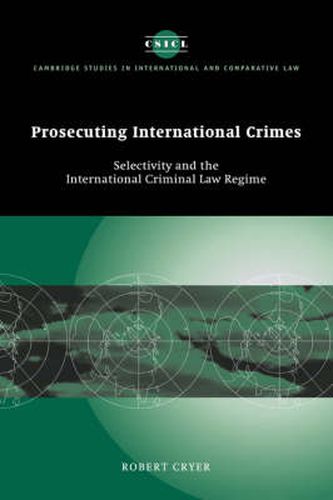Readings Newsletter
Become a Readings Member to make your shopping experience even easier.
Sign in or sign up for free!
You’re not far away from qualifying for FREE standard shipping within Australia
You’ve qualified for FREE standard shipping within Australia
The cart is loading…






This book discusses the legitimacy of the international criminal law regime. It explains the development of the system of international criminal law enforcement in historical context, from antiquity through the Nuremberg and Tokyo Trials, to today’s prosecutions of atrocities in the former Yugoslavia, Rwanda and Sierra Leone. The modern regime of prosecution of international crimes is evaluated with regard to international relations theory. The book then subjects that regime to critique on the basis of legitimacy and the rule of law, in particular selective enforcement, not only in relation to who is prosecuted, but also the definitions of crimes and principles of liability used when people are prosecuted. It concludes that although selective enforcement is not as powerful as a critique of international criminal law as it was previously, the creation of the International Criminal Court may also have narrowed the substantive rules of international criminal law.
$9.00 standard shipping within Australia
FREE standard shipping within Australia for orders over $100.00
Express & International shipping calculated at checkout
This book discusses the legitimacy of the international criminal law regime. It explains the development of the system of international criminal law enforcement in historical context, from antiquity through the Nuremberg and Tokyo Trials, to today’s prosecutions of atrocities in the former Yugoslavia, Rwanda and Sierra Leone. The modern regime of prosecution of international crimes is evaluated with regard to international relations theory. The book then subjects that regime to critique on the basis of legitimacy and the rule of law, in particular selective enforcement, not only in relation to who is prosecuted, but also the definitions of crimes and principles of liability used when people are prosecuted. It concludes that although selective enforcement is not as powerful as a critique of international criminal law as it was previously, the creation of the International Criminal Court may also have narrowed the substantive rules of international criminal law.